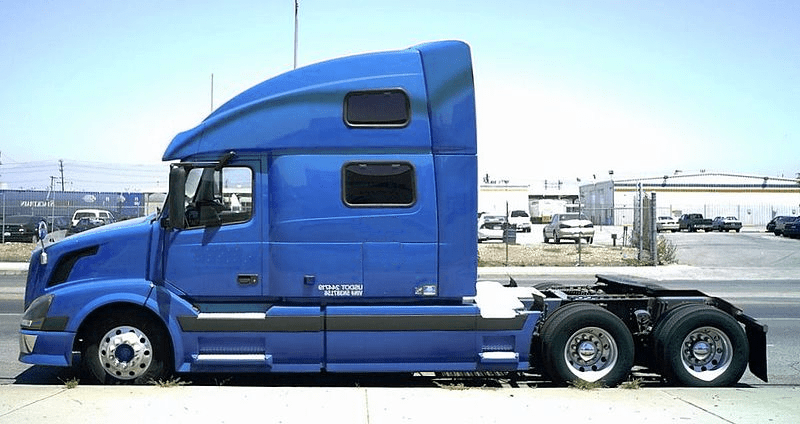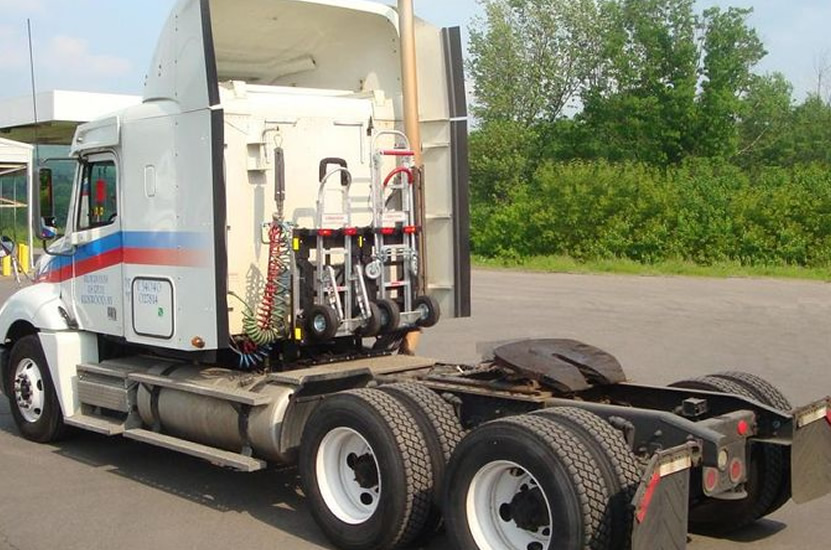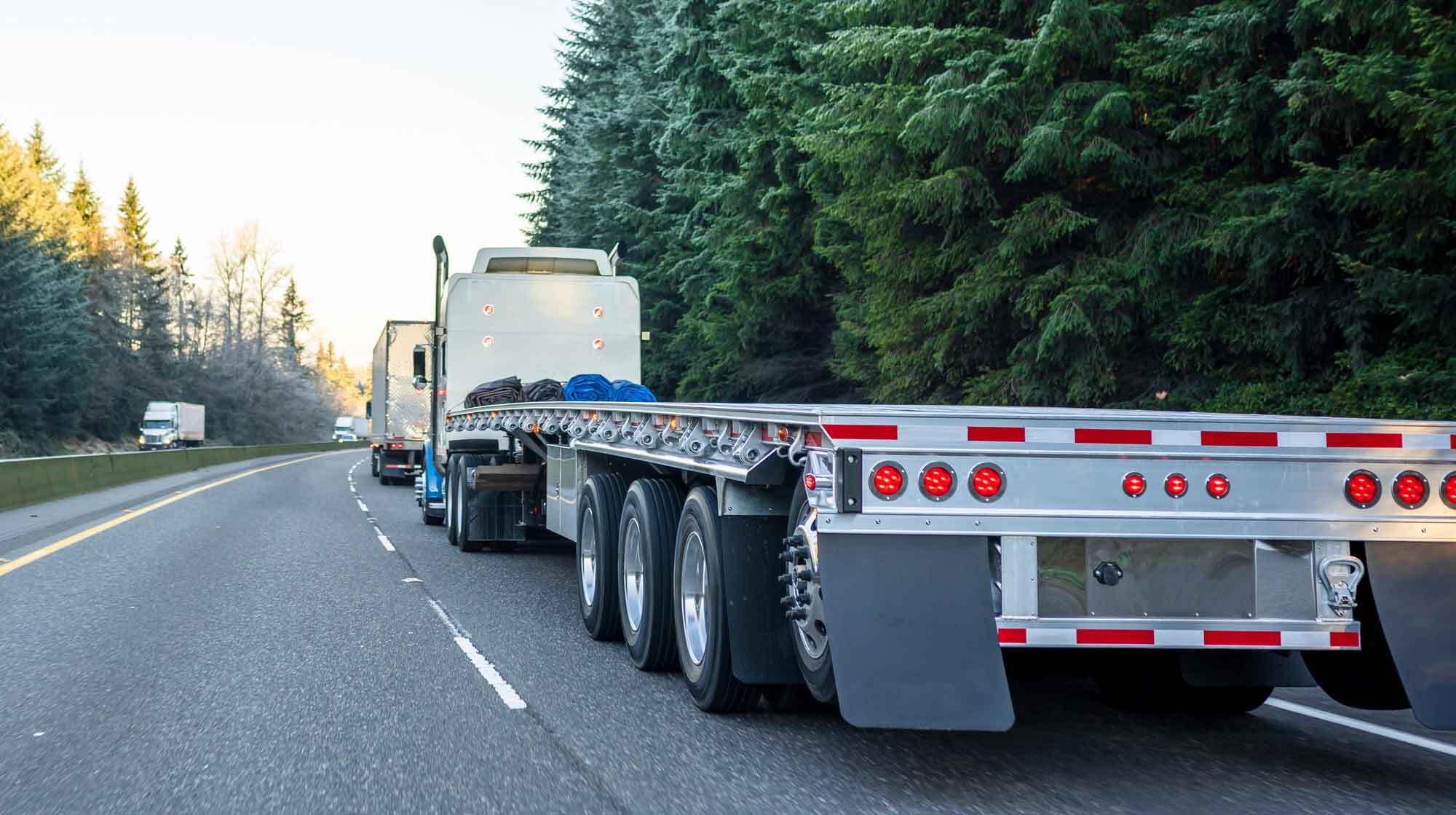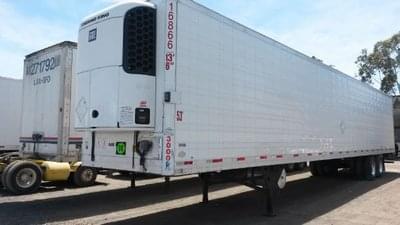If you’ve ever bounced over a deep pothole in early...
Read MoreLearning the trucking lingo might be difficult because there is a large number of terms that everyone in the trucking business uses. Every person in the trucking industry will know all of these terms and if you don’t know them you might be completely overwhelmed and will probably think everyone is speaking a different language. So, if you are just entering the trucking business, you will definitely need to pay attention to this article. It will teach you what the trucking industry is all about, and how to use the right terminology. Now let’s just jump right in and learn this lingo.
Lingo Terms
Base Plate: A semi-tractor’s license plate issued from the state in which the vehicle is registered.
Bill of Lading (BOL): A document detailing an agreement between a shipper and carrier that usually includes information like commodity, weight, pick-up and delivery dates, and payment terms.
Bobtail: A tractor without a trailer attached.


Cargo Insurance: Cargo insurance insures freight transported by for-hire truckers, and covers the driver or company in the event of loss, fire, and damage during transit.
Carrier: A trucking company or for-hire owner-operator that transports freight for shippers on a contractual or spot basis.
Carrier Packets: Paperwork to ensure the terms of each transaction between a Carrier and the Broker. Paperwork recorded in writing and acknowledged by each party helps everyone understand their responsibilities, limitations, rights, and duties.
Dead Heading: Driving a tractor and empty trailer to pick up a load. In most instances, deadhead miles don’t generate revenue for trucking companies and owner-operators, but company drivers may be paid their normal mileage rate for deadhead miles. Also, referred to as Not Under Load.
Dedicated Run: A run that usually always goes to the same place on an identical schedule. Most drivers ‘want’ a dedicated run’. Typically experienced/senior truckers get these runs.
Demurrage: When a commercial vehicle is detained beyond the time normally allowed for loading and unloading.
Driver Assist: If a driver is required to help offload cargo, this charge is applied – ($100-$150). The driver must do the work to be considered Driver Assist, not hired out….see Lumper.
Dry Van: A trailer that is enclosed, thus “dry,.” It could also be referred to as a Box Trailer.
E-log (ELD): An Electronic Logging Device that must be used by all truck drivers unless they fall into specific exemption categories. By using an E-log, drivers can ensure their compliance with all governmental hours of service regulations. All drivers are required to keep track of their hours of driving hrs/non-driving on-duty hrs/off duty hrs.
Fuel Surcharge (FSC): A cost that factors into the overall cost of moving freight based on the US National Average Fuel Index which is published weekly.

Flatbed: An open trailer used for hauling freight that doesn’t require a dry van or reefer trailer. Flatbed trucking hauls freight such as lumber, masonry products, equipment, cars, and steel coils.
IFTA: International Fuel Tax Agreement is an agreement among jurisdictions in the United States and Canada meant to simplify how fuel taxes are calculated by interstate and cross-border carriers. Each truck is required to be registered in the state they drive through. There are a few states that require extra licensing; for example the State of KY.
IFTA Reporting: Trucking companies are required to report quarterly; their miles and fuel purchases in each state and pay accordingly. Yes, Superior Trucking Payroll Service does provide this service.
Freight Brokerage: The intermediary between a shipper and the carrier (trucking company). Through the leveraging of pre-existing relationships, a freight brokerage works to find the best-fit capacity and ensure the successful transit of its customer’s freight. They are the middleman between the Shipper and the Trucking Company.
Layover: Similar to a detention charge, a layover charge is applied at a flat rate when the shipper isn’t ready when the carrier’s truck shows up. A layover typically refers to wait charges when it takes more than one day to load/offload.
Lease Purchase Agreement: A contractual agreement is similar to a standard lease, but in which the lessee has the option of buying the equipment at the end of the contract.
Liability Insurance: An insurance policy designed to protect individuals and businesses from being held liable for things like negligence and injury.
Linehaul: A trucking term for long-distance truck transportation between cities in different states. “My linehaul was from Grand Rapids, MI to Dallas, TX.”
Lumper: An individual that is hired to unload a truck at a dock. This person would NOT be the driver; see Driver Assist.
Motor Carrier: A private or for-hire commercial vehicle or transportation business that hauls passengers and/or freight.
Per Diem: The allowance for lodging, meals, and incidental expenses. Non-taxable wage allowed by the IRS. As for 2022, the rate is $69.00 daily.
Proof of Delivery (POD): Paperwork that confirms the delivery of a load. Usually includes a date and time stamp and a legible name or signature of the person who accepted it.
Rate: The amount paid for a load. Sometimes referred to as rate per mile, or can be % of the load value.
Rate Per Mile (RPM): Rate Per Mile (RPM) is trucking industry jargon regarding the pricing of a shipment on a per-mile basis.
Reefer Trailer: A trailer that is refrigerated. Used for produce or other products that need a set temperature.

Scales: Official weigh stations that randomly weigh commercial vehicles and sometimes perform mechanical and log inspections as well. Some loads have to be weighed before they leave the shipper, to assure they are not overloaded.
Shipper: A business/party whose freight is being moved.
Stop Charge: A charge applied to every stop a driver has to make to fulfill a freight’s delivery requirements.
Tanker: A closed, baffled trailer used to haul dry or wet bulk commodities like flour, dry concrete mix, gasoline, and cooking oil.
Toll: The fee vehicles must pay to use a particular highway or portion of a highway. Tolls are typically much higher for commercial vehicles compared to cars. Most tolls will charge by axle.
Trip Lease: When a driver leases his equipment to a carrier for one trip (load) only.
Bottom Line
These are just some of the lingo terms that you should know when entering the trucking business. There are other words that I might have missed but you will learn them all as you start working in the trucking industry. As you work you will learn more terms and expand your trucking vocabulary. If you want to learn more about any of these lingo terms or just want to learn more about anything about the trucking industry, our blog has tons of articles that will explain anything you need to know if great detail.
Contact Us!
Is Superior Trucking Payroll Service Worth the Higher Cost?
You’re Not Just Buying Payroll — You’re Buying Peace of...
Read MorePayroll for Trucking Companies: We Help Your Whole Trucking Family Get Paid
If you’ve heard of Superior Trucking Payroll Service, you’ve probably...
Read MoreHow Do I Pay Myself If My LLC Is an S-Corp or C-Corp?
How do I pay myself if my LLC is taxed...
Read MoreMarch 2025 Driver Pay Update for Trucking Companies
Are your drivers leaving for better pay? Are you wondering...
Read More
